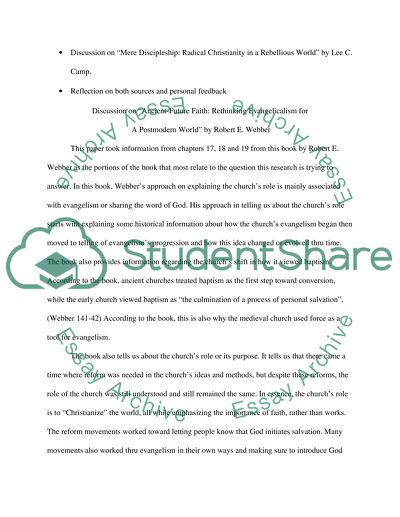Cite this document
(“The Churches Mission in the World Research Paper”, n.d.)
Retrieved from https://studentshare.org/religion-and-theology/1437665-what-is-the-churches-mission-in-the-world-and-how
Retrieved from https://studentshare.org/religion-and-theology/1437665-what-is-the-churches-mission-in-the-world-and-how
(The Churches Mission in the World Research Paper)
https://studentshare.org/religion-and-theology/1437665-what-is-the-churches-mission-in-the-world-and-how.
https://studentshare.org/religion-and-theology/1437665-what-is-the-churches-mission-in-the-world-and-how.
“The Churches Mission in the World Research Paper”, n.d. https://studentshare.org/religion-and-theology/1437665-what-is-the-churches-mission-in-the-world-and-how.


